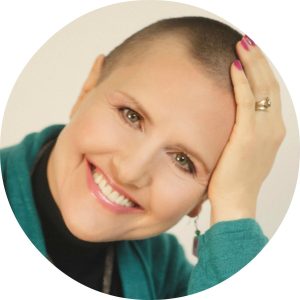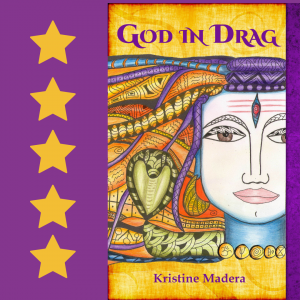The Wood Chipper of Love
First published in WNC Woman Magazine Valentine’s Issue
I’ve always gotten a chuckle at the term “falling in love,” as if love were an accident, like falling out of a tree. Instead of risking a broken arm, falling in love risked a broken heart. It’s this terminology surrounding love that makes people perform all manner of social contortions—Internet match sites, church, and synagogue singles nights, speed dating—to position themselves on a precipice of the heart so that they might, just maybe, fall into love the way one might fall into a wood chipper.
 As a metaphor for the accident of love, a wood chipper isn’t a bad one. In the pathology of love, the acute phase feels like each cell of your body has splintered into an independent being, each vibrating in a proprietary blend of bliss, lust, and the deep ache that comes when the expansiveness of spirit threatens to burst through the confines of a physical body.
As a metaphor for the accident of love, a wood chipper isn’t a bad one. In the pathology of love, the acute phase feels like each cell of your body has splintered into an independent being, each vibrating in a proprietary blend of bliss, lust, and the deep ache that comes when the expansiveness of spirit threatens to burst through the confines of a physical body.
You see dazzling sunsets on cloud-covered days, amuse strangers with spontaneous smiles, and relish ordinary experiences like a smooth cappuccino laced with bourbon. Other symptoms include the best kind of forgetfulness—old grudges get shrugged off, slights are ignored, and the “who’s supposed to hate who” in the politics of life and country fades to insignificant. And let’s not forget the perk of forgetting to eat and the resulting lightheadedness that adds to love’s ecstasy.
When the wood chipper breaks your heart wide open in the acute phase of love, you feel so alive that there are no limits to joy, to hope, to possibility. If we were all acutely in love all of the time, the world would be a much friendlier, less portly place. Not much would get done besides basking in the inner glow, but that might not be a bad thing.
Even the chronic phase of love elevates your emotional baseline. The world is generally brighter, the frazzled store clerk gets a kind word and a smile, and you give people the benefit of the doubt because it’s not worth the cost to your mood to flip out unless absolutely necessary. Chronic love leads to impulsive moments of joy, bursts of compassion, and the kind, heartfelt words that send Sour Susans and Dour Dougs into tizzy fits.
On the flip side—the falling out of love—the wood chipper shreds your heart and spreads the pieces like mulch on a pathway for the whole world to walk on. Your heart feels weighed down with bricks. It can be a struggle even to enjoy the things that made you happy pre-love. Lots of chocolate is the only way you can find to boost your serotonin levels to near normal.
So why do people risk falling into love? Because from the first childhood crush the thrill of love is one of the best natural, self-induced chemical highs you can experience. No drug can touch it, it feels that good. And unlike drugs, love is great for your health.
Unfortunately, or perhaps fortunately for the workaday world, the body is not designed to hold the love “high” for an extended period. The love high prompts the same physiological responses as the body’s stress response—dilated pupils, wide-open eyes, rapid heart rate, and enough adrenaline to scale the walls to the window of your beloved. In short spurts, this stress response is healthy, and can even boost your immune system—so try to fall in love during cold and flu season. Over an extended time, however, the acute love that feels so good and the stress response that comes with it can deplete your health and well-being, impair your immune system, and make you crash (so if you feel like that crash is the imploding of your love, it’s not, it’s just the body’s way of setting your life back on track.).
 The big difference between the acute and chronic phases of love is the time spent in the high; the acute phase consists of repeated spikes into the high, with the interim time spent in the very sustainable chronic love condition, and the occasional drop into the dark valley of “why hasn’t he called me” or “did she say her roommate’s name is Steve?” which also prompts a stress response, though one that doesn’t feel nearly as good as the love high.
The big difference between the acute and chronic phases of love is the time spent in the high; the acute phase consists of repeated spikes into the high, with the interim time spent in the very sustainable chronic love condition, and the occasional drop into the dark valley of “why hasn’t he called me” or “did she say her roommate’s name is Steve?” which also prompts a stress response, though one that doesn’t feel nearly as good as the love high.
Chronic love, in contrast, prompts the relaxation response, which pulls the body from a state of stress to a state of repair, recovery, and that warm fuzzy feeling of well-being. It’s much quieter than acute love and sends out a steady stream of serotonin, dopamine, and other feel-good chemicals that repair the body and soothe the soul.
So if love—acute or chronic—feels so good, why does our language set love up as an accidental occurrence, when, in fact, it’s not? I’m not saying that you can conjure up the flesh and blood love of your life out of thin air—that may require speed dating, a match site, or pleading with your angels to bend the laws of the universe. But your thoughts, your moods, and your emotional baseline can be, if not controlled, at least strongly influenced by you. Even Love. Particularly chronic love.
The vocabulary shift from “falling in love” to “living in love” would make it seem realistic to live in the steady, life-giving state of chronic love. This state holds so many benefits, from improved health and well-being to improved relationships, less drama, and more peace and tranquility. If the idea of choosing your emotions seems impossible, it could be another language issue. Constructions like “she made me mad” or “I am sad” present emotions as something that happens to us or part of our identity rather than an ordinary part of living that may arise outside of conscious awareness, but can be affected by paying attention.
Emotions create chemicals in the body. The body has chemical memory in the sense that when you are in a state of, say, anger because your mate has once again left his or her sweaty gym clothes to putrefy in the trunk of the car atop your dry cleaning, it is easier to remember all the other times said mate has made you angry, and then all the times that anyone else has made you angry, stretching back to the kid that lobbed spitballs at you in the second grade. This association stream isn’t the mark of bad character; it’s simply the way that your body-mind works in an untrained state.
Yes, untrained. It feels very natural to follow that emotional stream of anger back in time, feeding it until anger becomes righteous anger and then indignant anger, when, even though you may have heartburn from the shutdown of your digestion, you keep feeding it with memories until your pupils have overtaken your irises, your blood pressure looks like the latest NASDAQ numbers and your heart threatens to come crashing out of your chest. When you are that far down the stream, it feels so right to keep rowing as fast as you can. After the few seconds it takes to get there, you unleash on your mate the tsunami of a lifetime of anger that is totally out of proportion to the minor, if repetitive, infraction of forgetting the sweaty gym clothes. Almost as bad is to row down that anger stream while keeping the anger inside so as not to damage the relationship—because it can still damage your health, especially if it happens a lot.
The tide of stress-related emotions—anger, sadness, jealousy, rage, and the like can feel like a freight train because the tide of the adrenaline that they produce feels so righteous and powerful. It’s a false sort of power, but that’s a topic for a different essay. You can think of these emotions like stage-greedy divas that will do anything to remain center stage, including hijacking your chemical memory by streaming the memory of similar experiences like bullets on an ammo belt. It takes effort to train yourself how to feel anger in the present-moment incident of the gym clothes and to stay in the presence of that anger without firing up the next memory on the ammo belt. But if you can stay present, and feel the emotion without feeding it, it will naturally ebb and the chemistry of the emotion will dissipate. The relative emotional silence in the wake of chemical dissipation allows you, with practice, to choose your next thought as well as the emotion attached to it.
To practice living in love, focus on something you appreciate about that same person, like how that morning they tucked a breakfast bar and a love note in your pocket because you didn’t have time to eat. Feeling a little warmer toward them, you can feed that more-loving stream by finding something else to appreciate about them, until you are riding the stream of loving feelings and can put the gym clothes incident into perspective. Living in love, as opposed to falling in love, is intentional—a deliberate choosing of thoughts and emotions that reinforce love, and expand that love from relationships and circumstances to all of life.
“But it feels so contrived, so inauthentic,” one friend lamented when I suggested that she stream love-inducing thoughts to feel better and magnetize a worthy mate. This same friend thought it authentic to let a thought of sadness at a newspaper headline escalate to a wave of sadness over the injustices of the world and her life, which carried her down a sludgy river into melancholy and semi-permanent residence in the chocolate aisle.
 Is it any less contrived to arrange your life around singles events and blind dates on the off chance of falling into the wood chipper of love?
Is it any less contrived to arrange your life around singles events and blind dates on the off chance of falling into the wood chipper of love?
By now you have probably heard the Cherokee parable of the grandfather who told his grandson about the ever-present contest between the two wolves that lived inside him, the wolf of anger, envy, sorrow, regret, greed, arrogance, self-doubt, and ego, and the wolf of joy, peace, love, hope, humility, kindness, generosity, compassion, gratitude, and faith. When the grandson asks which wolf will win, the grandfather says that the winner will be the one that he feeds. Which wolf do you feed?
If you prefer feeding the loving wolf, try these three strategies to turn the tide of stressful emotions toward the intentional practice of living in love.
Use your breath: the breath is the link between the mind and the body. What is going on in the mind affects the breath, and the mindful use of breath can change what is going on in the body. Short, shallow, chest breathing is a sign of stress. Changing your breathing to longer, slower, diaphragmic (belly) breaths shifts your body, then your emotions and thoughts, toward a healing, restorative, more loving state by prompting the relaxation response.
Utilize your body: body language does more than tell others how you are feeling. It can reinforce how you feel, or you can change your body language to signal your body what you would like it to feel. A bowed head and rounded back can reinforce—or even induce—feelings of defeat and depression. A relaxed, erect posture can help you feel open-hearted, confident, or upbeat. Smiling can release chemicals in the body that make you happier. Laughter releases feel-good hormones. Exercise is a proven way of releasing stress hormones and inducing the chemistry of relaxation.>
Choose effective emotions: appreciation and gratitude are the emotional fast track to feeling good. Love and joy can feel elusive when you are mad or sad, but you can always find something to appreciate. Gratitude is a great way to start the day. I always find three or four things to feel grateful for before I get out of bed in the morning to jumpstart my way to a good-feeling day.
None of these strategies are likely new to you, but before you scoff at their simplicity, have you consistently used them to shift the emotional baseline of your life? Because when practiced steadily, they do work. There is no secret knowledge or ritualized initiation that will transform you into a life of living in love. Living in chronic love, and reaping the benefits, does not come from any esoteric knowledge or power, it arises within you through intention and practice. The key is to choose day-by-day, moment-by-moment, breath-by-breath, to attune your thoughts, feelings, and emotions to living love.
 Lest you think that resetting your emotional baseline to living in love might somehow diminish the aching bliss of falling in love, be cheered. The state of chronic love may intensify the bliss factor by making the stress response of love’s high easier to tolerate, extend, and recover from. It also makes heartbreak a shallower fall, and a softer place to land, if the worthy risk of love should land you there.
Lest you think that resetting your emotional baseline to living in love might somehow diminish the aching bliss of falling in love, be cheered. The state of chronic love may intensify the bliss factor by making the stress response of love’s high easier to tolerate, extend, and recover from. It also makes heartbreak a shallower fall, and a softer place to land, if the worthy risk of love should land you there.
Full disclosure: I fibbed a little earlier. Though chronic love is an intentional path of the heart, there truly is something accidental—and healing, liberating, soul-soaring, and just plain primal—about falling in love. I highly recommend it. I also recommend that, when it happens, don’t just fall, plunge head first, eyes open, heart wide, into the biggest, boldest, most bodacious wood chipper of love you can find.
Let’s Get Social

About Kristine
Pushing the edges of my consciousness has been my passion for as long as I can remember. This has flowed me into writing, podcasting, and becoming a hypnotherapist to help others push past limiting perceptions and expand their awareness and possibilities, too. Welcome to my world. Thanks for visiting!

